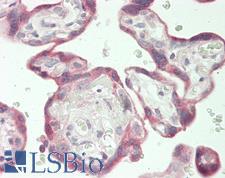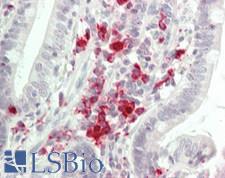Login
Registration enables users to use special features of this website, such as past
order histories, retained contact details for faster checkout, review submissions, and special promotions.
order histories, retained contact details for faster checkout, review submissions, and special promotions.
Forgot password?
Registration enables users to use special features of this website, such as past
order histories, retained contact details for faster checkout, review submissions, and special promotions.
order histories, retained contact details for faster checkout, review submissions, and special promotions.
Quick Order
Products
Antibodies
ELISA and Assay Kits
Research Areas
Infectious Disease
Resources
Purchasing
Reference Material
Contact Us
Location
Corporate Headquarters
Vector Laboratories, Inc.
6737 Mowry Ave
Newark, CA 94560
United States
Telephone Numbers
Customer Service: (800) 227-6666 / (650) 697-3600
Contact Us
Additional Contact Details
Login
Registration enables users to use special features of this website, such as past
order histories, retained contact details for faster checkout, review submissions, and special promotions.
order histories, retained contact details for faster checkout, review submissions, and special promotions.
Forgot password?
Registration enables users to use special features of this website, such as past
order histories, retained contact details for faster checkout, review submissions, and special promotions.
order histories, retained contact details for faster checkout, review submissions, and special promotions.
Quick Order
PathPlusTM TGFBR2 Antibodies
TGFBR2 (Transforming growth factor, beta receptor II) is a transmembrane serine/threonine kinase that regulates a range of physiological and pathological processes including cell cycle arrest in epithelial and hematopoietic cells, control of mesenchymal cell proliferation and differentiation, wound healing, extracellular matrix production, immunosuppression and carcinogenesis. It participates in the canonical SMAD-dependent TGF-beta signaling cascade and is also involved in non-canonical, SMAD-independent TGF-beta signaling pathways. Mutations in TGFBR2 are associated with various cancers and diseases such as Osler-Weber-Rendu syndrome, Marfan syndrome, and Loeys-Deitz aortic aneurysm syndrome. In cervical cancer, downregulation of TGFBR2 alongside upregulated TERT is correlated with poor prognosis. In immunohistochemistry of normal tissue, TGFBR2 has membranous positivity in all tissues throughout the body.
References: The UniProt Consortium. Nucleic Acids Res. 47: D506-515 (2019); Nucleic Acids Res. 2016 Jan 4;44(D1):D733-45, PMID:26553804; Sci Rep 7, 41670 (2017), DOI: 10.1038/srep41670;
2 PathPlusTM Antibodies


☰ Filters
Products
Antibodies
(2)
Type
Primary
(2)
Target
TGFBR2
(2)
Reactivity
Human
(2)
Mouse
(1)
Application
IHC
(1)
IHC-P
(2)
WB
(2)
IF
(1)
Host
rabbit
(2)
Product Group
PathPlus Cancer
(2)
Isotype
IgG
(1)
Clonality
polyclonal pc
(2)
Format
Unconjugated
(2)
Epitope
aa13-40
(1)
aa517-567
(1)
Publications
No
(2)

Cancer
TGFBR2 Rabbit anti-Human Polyclonal (aa13-40) Antibody
Mouse, Human
IF, IHC-P, WB
Unconjugated
200 µl/$460

Cancer
TGFBR2 Rabbit anti-Human Polyclonal (aa517-567) Antibody
Human
IHC, IHC-P, WB
Unconjugated
50 µl/$460
Viewing 1-2
of 2
product results











